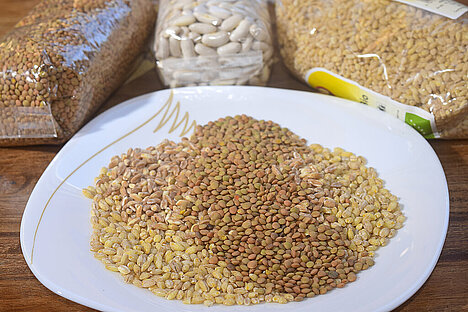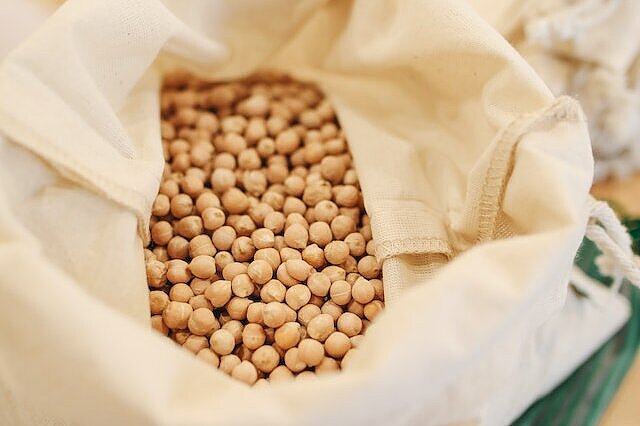Legume plants

But are legume plants also suitable for dogs? In this article, you can find out more about the advantages and disadvantages of legume plants in dog food and what you should look out for.
Benefits of legume plants for dogs
Legume plants can have several benefits for dogs, especially when used as a supplement to a balanced diet. Here are some of them:
- Legume plants are rich in plant protein, which is important for muscle building and cell regeneration. Vegetable protein can also be an alternative for dogs that are allergic to animal protein or suffer from kidney problems.
- Legume plants are high in fiber, which aids digestion and increases satiety. Fiber can also help regulate blood sugar levels and reduce the risk of diabetes.
- Legume plants provide many vitamins, minerals and antioxidants that strengthen the immune system and protect against disease. For example, they contain vitamin B1, B6, folic acid, iron, zinc, magnesium and potassium.
- Legume plants are environmentally friendly and sustainable. They require less water and fertilizer than other plants and improve soil quality by fixing nitrogen.
Disadvantages of legume plants for dogs
Legume plants are not suitable for all dogs and can also have some disadvantages. Here are some of them:
- Legume plants can cause bloating and digestive discomfort, especially when fed raw or in large quantities. This is because they contain difficult-to-digest carbohydrates that are fermented by bacteria in the gut. To avoid this, you should always cook or soak legume plants well and only feed them in small quantities.
- Legume plants can cause allergies or intolerances, especially in sensitive or allergic dogs. The most common symptoms are itching, skin rash, diarrhea or vomiting. If you suspect that your dog has an allergy or intolerance, you should consult a vet and follow an exclusion diet.
- Leguminous plants can reduce the content of taurine, an essential amino acid for dogs. Taurine is important for heart function and vision. A lack of taurine can lead to heart disease or blindness. To avoid this, you should always feed your dog enough animal protein or give him a taurine supplement.
- Leguminous plants can increase the content of phytic acid, a substance that inhibits the absorption of minerals such as iron or zinc. This can lead to deficiency symptoms or anemia. To avoid this, you should always cook or soak legume plants well and combine them with foods rich in vitamin C.
Legume crops can have several benefits for dogs, such as providing vegetable protein, fiber, vitamins, minerals and antioxidants. They are environmentally friendly and sustainable. However, they can also have some disadvantages, such as bloating and digestive problems, allergies or intolerances, and the reduction of taurine and mineral content in the diet. It is therefore important to feed leguminous plants in moderation and properly prepared, and to consult the vet if there are any signs of problems.
If you notice any signs of hypersensitivity or poisoning in your dog, you should see your vet immediately. We are not a substitute for a vet, but we try to be as accurate as possible. Every dog reacts differently and we recommend you get a second opinion or consult your vet if in doubt.
Stay healthy and take good care of your four-legged friend!😊
Similar to Legume plants
Lentils are the seeds of plants from the papilionaceous family. There are different varieties of lentils, which differ in shape, color and taste. The best known are red, green and brown lentils....
There are different types of peas that you can give your dog, such as Green peas: These are the classic peas that you can buy fresh, frozen or dried. They are safe for dogs as long as they are not...
Beans are one of the oldest cultivated plants in the world and have been used as food for thousands of years. There are many different types of beans, for example green beans, kidney beans, white...
The short answer is yes, but only cooked and in moderation. When raw, chickpeas contain the toxic substance phasin, which causes the red blood cells to clump together and can lead to diarrhea,...



